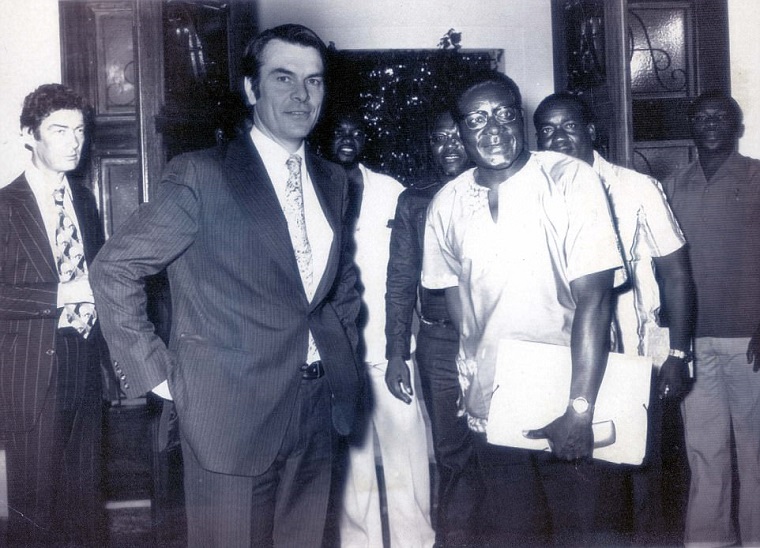In 2017, Daily Maverick published a series of articles based on Stuart Doran’s monumental history of ZANU-PF and Robert Mugabe, titled ‘Kingdom, Power, Glory’. In this major review of the book, former British Foreign Secretary David Owen reflects on his own intimate dealings with Mugabe during the 1970s, and his efforts to understand the man who would rule Zimbabwe for nearly four decades. Drawing on personal observation and reporting by MI6, Owen was initially attracted by Mugabe’s “high personal standards” and “apparent integrity”. But other, darker strands soon became visible.
Stuart Doran’s book Kingdom, Power, Glory: Mugabe, ZANU and the quest for supremacy 1960-1987 is a book of towering importance for the African continent and I cannot recommend it too highly. Pages 646 to the end are of huge importance, and the following three paragraphs deserve quoting in full.
“One social force that has received attention, at least with regard to the period before 1980, is ‘tribe’ or ‘ethnicity’. Scholars of Zimbabwe and, more generally, of African studies, have reacted to stereotypes about ancient tribal animosities by pointing to the complexities that attend conflict and the fact that ethnicity often has little to do with situations popularly categorised as a function of tribe. The history of ZANU’s rivalry with ZAPU bears this out at many points. The leaders of the two parties were initially united under the ZAPU banner and came to blows after the split not because they were different but because they shared the same supremacist ideology. Ethnically, many Shona leaders remained with Nkomo into the 1980s, and ZIPRA also retained an important Shona membership throughout the war. On the ZANU side, ZAPU’s most vocal opponent was a Ndebele speaker, Enos Nkala.
“And yet it will not do to follow another vagary of academic fashion which, prompted by an anxiety to demolish popular colonial shibboleths, has often seen tribe and ethnicity vanish almost completely from the historical narrative. The reality is that the historical participants themselves refer too frequently to tribe and other ethnic divisions for it to be discounted as a motivating factor. It is not enough to simply elucidate the often fluid and arbitrary parameters used by participants (or former colonial authorities) to define tribe. In and of itself, this is an abstraction that can serve to simply discourage the acknowledgement of powerful ethnic forces on political events and movements. ZANU-PF’s characterisation of Ndebele speakers as ‘dissident people’ in 1982 had a political function, as did the deployment of 5 Brigade in 1983, but the intensity of the killings, the hatred that made their obscene nature and vast scale possible, and the constant references to tribe that accompanied them are poorly explained by politics alone.
Continued next page
(2156 VIEWS)
